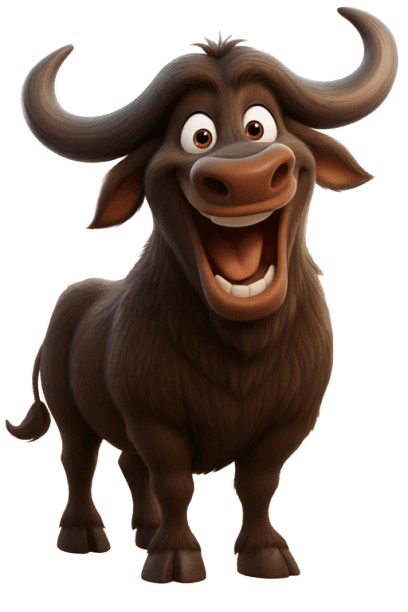How to Identify a Sick Animal Quickly
- Home
- Cattle Knowledge
- How to Identify a Sick Animal Quickly
How to Identify a Sick Animal Quickly: A Practical Guide for Dairy Farmers
Running a dairy farm means managing multiple animals every day. With so many cows and buffaloes around, it often becomes difficult to identify which one is sick. Early detection, however, is extremely important—because timely treatment can save the animal, reduce milk loss, and prevent disease from spreading.
This guide explains simple, practical methods to identify a sick animal just by observing it, even from a distance. These tips are especially helpful for dairy farmers, livestock workers, and anyone involved in animal care.
Why Early Diagnosis Matters
A farmer who can spot the first signs of illness is always one step ahead.
Early identification helps in:
Preventing the disease from getting worse
Saving treatment costs
Reducing milk production loss
Protecting other animals from infection
The best part?
You don’t always need a medical test — you can diagnose many issues just by observing the animal’s body language, posture, and behavior.
How to Identify a Sick Animal at First Glance
Below are the key signs you should check whenever you enter the shed. By practicing daily observation, you will become skilled at identifying even the slightest abnormal behavior.
1. Observe the Animal’s Posture
A healthy animal stands firmly, moves comfortably, and appears alert.
A sick animal often shows:
• Bent or arched back
If the back looks raised or curved unnaturally, it can indicate abdominal pain, fever, or digestive problems.
• Drooping neck or head
A lowered head usually shows weakness or discomfort.
• Stiff or slow movement
If an animal avoids walking or moves reluctantly, it may be in pain or suffering from fever or limb issues.
2. Look at the Abdomen & Body Shape
One of the clearest signs of illness is the stomach area.
• Sunken abdomen
If the belly looks tucked in or loose, the animal may not be eating properly or may have digestive trouble.
• Reduced rumination (chewing cud)
Healthy cows frequently chew cud.
If cud chewing stops, the animal is almost always sick.
3. Check the Eyes and Facial Expression
The eyes tell the truth.
Dull or half-closed eyes indicate fever or weakness
No shine in the eyes = health issue
Tear marks or dryness show discomfort
A healthy animal has bright, alert eyes.
4. Notice the Animal’s Behavior
Behavior changes are usually the first signs of sickness.
Signs of abnormal behavior:
Not showing interest in feed
Standing in one corner away from other animals
Not reacting to people
Avoiding movement
Unusual silence or restlessness
If an animal isolates itself, consider it a warning sign.
5. Check the Smell and Mouth Condition
A sick animal often shows signs around the mouth.
Bad breath
Drooling
Dry mouth
Difficulty eating
Even a slight bad smell from the mouth can indicate infection or digestive problems.
6. Look for Changes in Dung and Urine
Healthy dung has a consistent texture.
Signs of illness include:
Too watery or too dry dung
No dung passing for long hours
Dark or foul-smelling urine
Very little urine
These signs help diagnose internal issues.
7. Listen to the Farmer or Caretaker
This is a very important step.
Ask the caretaker:
Has the animal eaten less today?
Is it drinking water properly?
Did it behave differently this morning?
Has milk production dropped?
Farmers observe their animals daily, so their feedback helps confirm the diagnosis.
Example: Identifying the Sick Animal Among Many
In a shed with multiple cows and buffaloes, you can still identify a sick one by noticing:
The animal standing with lowered head
A sunken stomach
Dull eyes
Weak posture
No interest in eating or chewing cud
Even from a distance, these symptoms make the sick animal stand out.
With practice, your observation skills become sharper — almost like a trained veterinarian.
Final Tips for Accurate Detection
Train your eyes to pick small signs
Observe animals both morning and evening
Note daily habits — any change helps detect illness
Act quickly after identifying symptoms
Consult a veterinarian early for serious issues
App Downloads
Advisor’s Team

Social Media Reach

Happy Customers



Subscribe To Our Newsletter
Welcome to TabelaWala, brand name of White Gold Livestock Private Limited, the ultimate marketplace for dairy farmers looking to buy or sell cows and buffaloes online as well as offline.

+91 830 570 6703
Got Questions? Call us 24/7


